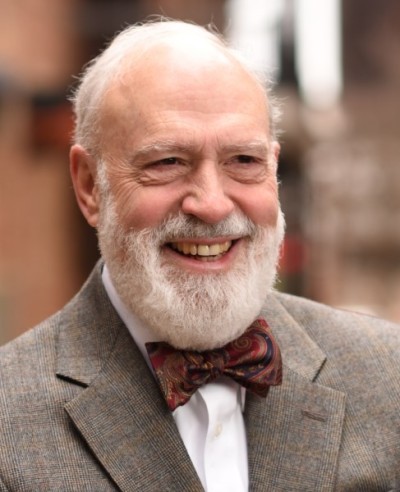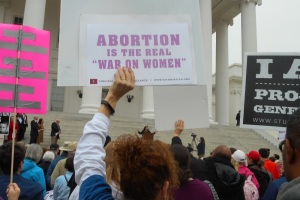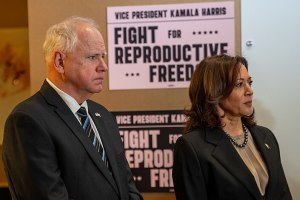Dogma that lives loudly within you

Now that Justice Amy Coney Barrett has joined the majority in blocking New York Gov. Andrew Cuomo from enforcing attendance limits at religious services, has Sen. Dianne Feinstein been proved right to be concerned about Barrett’s deep-seated Catholic faith influencing her decisions? Questioning Barrett about her religious beliefs when Barrett was a nominee to the Seventh Circuit Court of Appeals, Feinstein asked: “Why is it that so many of us on this [Democratic] side have this very uncomfortable feeling that, you know, dogma and law are two different things. Whatever religion is,” says Feinstein, “it has its own dogma. The law is totally different.” Then comes the revealing punchline: “When you read your speeches, the conclusion one draws is that the dogma lives loudly within you, and that’s of concern….”
If you’ve ever wondered what fault line separates many Democrats from many Republicans, Feinstein just identified what “so many of us on this side” believe — that one’s religious faith must be kept strictly private. And that, in COVID terms, religion should be quarantined lest it infect the law. (Too late for that. Modern law has deep roots in both biblical and Church law.) Abortion law, of course, is the real concern. Little wonder that Catholic Democrats who reject Catholic teaching on abortion (most notably Nancy Pelosi and Joe Biden) are so upset that a Catholic who takes Catholic dogma seriously has now risen to the highest Court in the land.
That said, Barrett’s religious convictions are not the real problem for her detractors. Rather, it’s her legal dogma — Constitutional originalism — that would explain any future opinion she might write curbing Roe v. Wade. (It was Justice Ginsburg, by contrast, who famously let her ideology influence her thinking on the Court. Having little to do with her Jewish religion, it was her personal views on abortion and women’s rights that led her to utilize an extra-constitutional rationale for legally imposing the secular dogma living loudly within her.)
So, what was Feinstein saying? That her own beliefs don’t live loudly within her? Or that she is not in the least informed by her religious convictions (and shouldn’t be?) when she makes political decisions in Congress? If it’s the latter, Feinstein is not alone. Far too often, believers of every stripe have a compartmentalized faith, with a personal “wall of separation” between their faith and everyday life. Unconscious though it may be, the refrain rings clearly: “There’s my faith, then there’s everything else in my life, and nary the twain shall meet.” (Not unlike Christian professors who may talk the talk about faith-informed learning but make little or no effort to “think Christianly” about English, math, music, history, biology, or law.)
Do you believe in social justice? From the Old Testament prophets onward, nothing has championed social justice more profoundly than fervent religious faith prompting social action. Merely consider British statesman William Wilberforce, whose dogma, living loudly within, persuaded Parliament to ban slavery. Or the dogma living loudly within Martin Luther King that empowered his call for racial justice. Across a broad swath of social issues, faith in the public square matters! And all the more so when secular dogma is uncritically allowed free rein.
For many pro-choice Democrats, as Feinstein has unwittingly revealed, religious faith has no place in public life. But given the widespread notion of privatized faith, the same could also be said of many pro-life Republicans — and possibly even you and me. Is ours a compartmentalized faith? Whatever formal religious dogma we may espouse, the dogma by which we live, work, and make daily decisions is our true dogma — for better or worse, the dogma living loudly within.
F. LaGard Smith is a retired law school professor (Pepperdine, Liberty, and Faulkner law schools), and is the author of some 35 books, touching on law, faith, and social issues. He is the compiler and narrator of The Daily Bible (the NIV and NLT arranged in chronological order), and posts weekly devotionals on Facebook, drawing spiritual applications from current events.




























